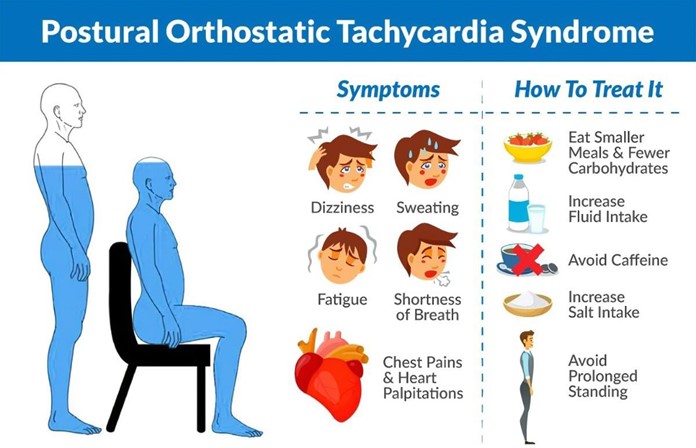A client with tachycardia and hypotension presents to the emergency department (ED) reporting severe vomiting and diarrhea for three days. Which action is most important for the nurse to implement?
Monitor for impending signs of shock.
Initiate enteric precaution procedures.
Reduce light, noise and temperature.
Encourage electrolyte supplements.
The Correct Answer is A
Choice A reason: This client has signs of dehydration and fluid volume deficit, which can lead to shock, a life-threatening condition that occurs when the body's organs are not receiving enough blood flow. The nurse should monitor the client's vital signs, urine output, skin color, and level of consciousness, and report any changes to the physician.
Choice B reason: Initiating enteric precaution procedures is important to prevent the spread of infection, as vomiting and diarrhea may be caused by a contagious pathogen. However, this is not the most important action for the nurse to implement, as it does not address the client's immediate risk of shock.
Choice C reason: Reducing light, noise and temperature may help the client feel more comfortable and reduce nausea, but it is not the most important action for the nurse to implement, as it does not address the client's fluid volume deficit and potential shock.
Choice D reason: Encouraging electrolyte supplements may help replenish the electrolytes lost through vomiting and diarrhea, but it is not the most important action for the nurse to implement, as it may not be enough to restore the fluid balance and prevent shock. The client may need intravenous fluids and medications to correct the dehydration and hypotension.

Nursing Test Bank
Naxlex Comprehensive Predictor Exams
Related Questions
Correct Answer is B
Explanation
Choice A Reason: Waiting until the end of the second week to see if the orientee is able to complete her assignments is not the best action for the charge nurse to take. This would delay providing feedback and support to the orientee, who may feel frustrated and discouraged by her performance. The charge nurse should intervene as soon as possible to help the orientee improve her skills and confidence.
Choice B Reason: Assigning the orientee to work with an experienced nurse who is a long-time, efficient employee is the best action for the charge nurse to take. This would provide the orientee with a role model and a mentor who can guide her through the daily tasks, share tips and tricks, and offer constructive feedback and encouragement. The orientee would benefit from learning from someone who has mastered the workflow and expectations of the unit.
Choice C Reason: Informing the supervisor that for client safety this nurse should be assigned to a slower-paced unit is not the best action for the charge nurse to take. This would imply that the orientee is incompetent and unsuitable for the unit, which may damage her self-esteem and motivation. The charge nurse should first try to help the orientee adjust to the unit and develop her competencies before considering a transfer.
Choice D Reason: Talking to the orientee and asking her if she has considered working in a less stressful environment is not the best action for the charge nurse to take. This would suggest that the charge nurse has given up on the orientee and does not believe in her potential. The charge nurse should first try to understand the challenges and needs of the orientee and provide appropriate guidance and support before suggesting alternative career options.
Correct Answer is D
Explanation
Choice A Reason: A client with multisystem failure secondary to a motor vehicle collision is not an appropriate assignment for the new graduate nurse. This client has complex and unstable needs that require advanced assessment, intervention, and evaluation skills. The nurse should assign this client to a nurse with 10 years experience, who has more expertise and confidence in managing critically ill clients.
Choice B Reason: A client in end-stage liver failure who is experiencing esophageal bleeding is not an appropriate assignment for the new graduate nurse. This client has a high risk of complications such as hemorrhage, infection, hepatic encephalopathy, and hepatic coma. The nurse should assign this client to a nurse with 5 years experience, who has more knowledge and skill in providing palliative care and managing bleeding disorders.
Choice C Reason: A client with Adult Respiratory Distress Syndrome who is on a ventilator is not an appropriate assignment for the new graduate nurse. This client has a life-threatening condition that requires close monitoring of respiratory status, oxygenation, and hemodynamics. The nurse should assign this client to a nurse with 10 years of experience, who has more competence and proficiency in caring for ventilated clients and interpreting data from invasive devices.
Choice D Reason: A client with chest tubes secondary to a stab wound to the chest is an appropriate assignment for the new graduate nurse. This client has a relatively stable condition that requires routine care of chest tubes, pain management, and wound healing. The nurse should assign this client to the new graduate nurse, who has learned the basic principles and techniques of chest tube management during the refresher course and the internship. The charge nurse should also provide supervision and support to the new graduate nurse as needed.
Whether you are a student looking to ace your exams or a practicing nurse seeking to enhance your expertise , our nursing education contents will empower you with the confidence and competence to make a difference in the lives of patients and become a respected leader in the healthcare field.
Visit Naxlex, invest in your future and unlock endless possibilities with our unparalleled nursing education contents today
Report Wrong Answer on the Current Question
Do you disagree with the answer? If yes, what is your expected answer? Explain.
Kindly be descriptive with the issue you are facing.
